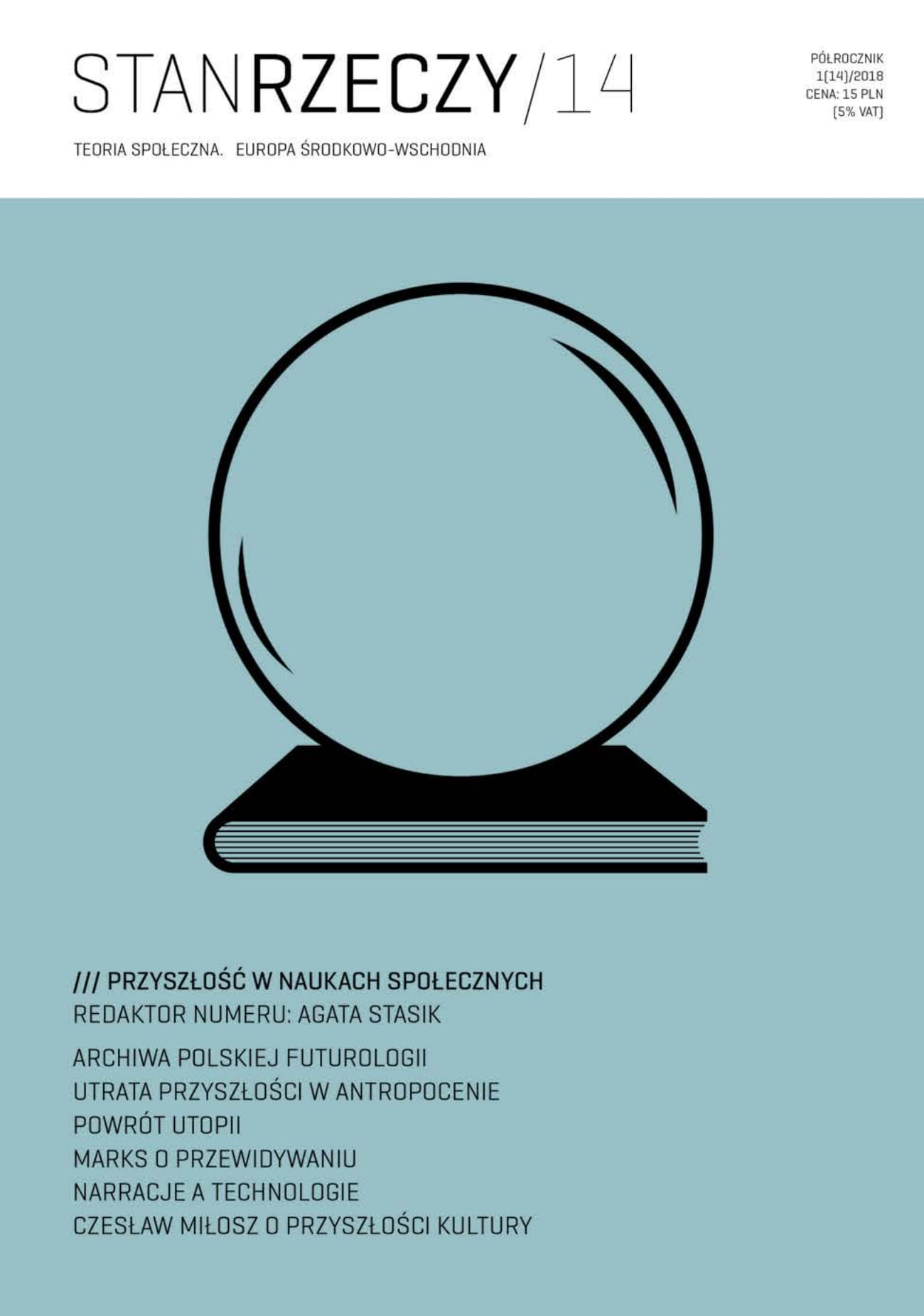Utrata przyszłości w epoce antropocenu
The Loss of the Future in the Anthropocene
Author(s): Ewa BińczykSubject(s): Social Sciences, Sociology, Policy, planning, forecast and speculation, Environmental interactions
Published by: Wydział Socjologii Uniwersytetu Warszawskiego
Keywords: Anthropocene;the loss of the future;climate change;planetary boundaries;
Summary/Abstract: As Martín Caparrós argues: “ecology has become a sign of the times, the times that lack the vision of the future.” It is my belief that an excellent illustration of Caparrós’s thesis can be found in the interdisciplinary debate on the position of Eugene F. Stoermer and Paul Crutzen, who have proposed that, on account of the scale and scope of human interference in planetary systems, the current geological epoch be called the Anthropocene – the epoch of man. Scientists concerned by the scale of the current planetary crisis are already voicing further warnings to humanity. But, is the Anthropocene also an epoch without any ideas for the future? We have lost much of our coral reefs, climate stability, the seasons, many species and even nature at large. How should we understand the thesis of the loss of the future in the epoch of man? As it appears, an insurmountable barrier to thinking about the future in the 21st century is the dominance of market-based attitudes, in which an investment horizon of no more than 20–30 years is taken into consideration. Could it be that ignoring the climate and environmental costs inherent in the development of modern economies is evidence of a collective / 134 repression of the very notion of a future? How, then, in such circumstances, can we formulate any far-reaching future scenarios? Does the risk of sudden climate change not put into question the validity of linear thinking and the current Western understanding of time? In the article I seek possible answers to this questions relying on earlier analyses of the selected narratives in the debate on the Anthropocene. These include: 1) the naturalistic narrative of scientists (E. Stoermer, P. Crutzen, W. Steffen, J. Zalasiewicz, J. Rockström), 2) the narrative of humanists from post-naturalist circles (D. Haraway, B. Latour, I. Stengers, D. Chakrabarty), 3) the discourse of eco-Marxists, who use the label Capitalocene and are critical of the Anthropocene label (J. Moore, I. Angus, A. Hornborg, A. Malm, C. Bonneuil, J.-B. Fressoz, S. Lewis, M. Maslin), 4) the eco-catastrophic discourse (C. Hamilton, E. Crist, J. McBrien, E. Swyngedouw, N. Oreskes, E. Conway), and 5) the narrative of eco-modernists peaking about a good or even great Anthropocene (T. Nordhaus, M. Schellenberger, D. W. Keith).
Journal: Stan Rzeczy
- Issue Year: 2018
- Issue No: 14
- Page Range: 109-134
- Page Count: 26
- Language: Polish

